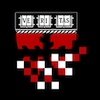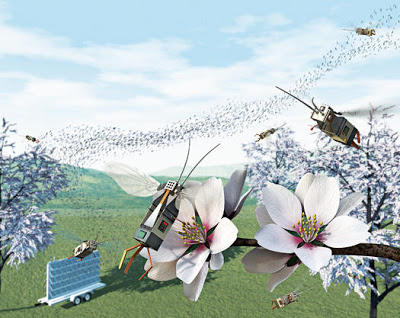Honeybee colonies exhibit incredibly efficient and adaptive behaviors as a group, even though an individual bee is tiny compared to the world it lives in. Honeybee colonies regularly find and exploit resources within 2-6 km of their hive, adapt the number of bees exploring and exploiting multiple resources (pollen, nectar, water) based on the environment and needs of the colony, and can even recover when dramatic changes are made to their world. While much remains to be understood, biologists believe that many of these sophisticated group behaviors arise from fairly simple interactions between honeybees in the hive, as they share information and adapt their own choices. There seems to be no leader, no centralized authority, to coordinate the hive.
The goal of the NSF Expeditions Robobee Project was to develop concepts and technologies for robots and algorithms, that would allow us to achieve the kind of sophisticated behaviors of natural swarms like honeybees The project was divide into three parts: Body, Brain and Colony. Our group worked mainly on colony aspects, including developing global-to-local programming techniques (Karma and OptRAD), developing mixed hardware-virtual simulation setups (Simbeeotic), and working on autonomous drones using bee-inspired optic flow. In addition, we developed the Kilobot colony of a thousand robots that allowed further investigations into colony programming. Our work from the Robobee project has also been applied to other disciplines, such as nanoparticle swarm design, and led to many outreach opportunities, such as our Museum of Science Exhibit. To get an overview of the project goals and accomplishments, see our article in Scientific American.









